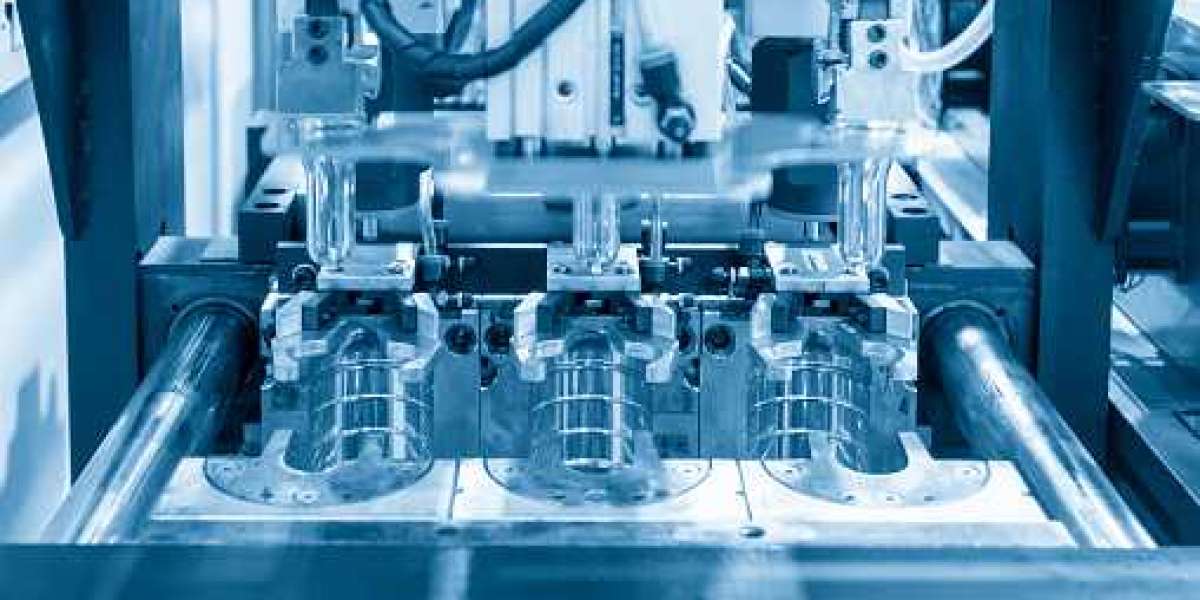How Plastic Injection Moulding Machines Are Revolutionizing Manufacturing
Introduction
Plastic injection moulding machines have emerged as a game-changer in the manufacturing sector, significantly enhancing efficiency, precision, and cost-effectiveness. This advanced technology has transformed industries ranging from automotive and healthcare to consumer goods and electronics. With innovations in automation, sustainability, and material science, plastic injection moulding is redefining how products are designed, produced, and delivered to the market.
The Basics of Plastic Injection Moulding
According to a Plastic Injection Moulding Market report, the industry is expected to grow significantly in the coming years.
Plastic injection moulding is a manufacturing process that involves injecting molten plastic into a mould cavity, which then cools and solidifies into the final shape. The process consists of four main stages:
Clamping: The mould is securely closed to ensure accurate shaping.
Injection: Molten plastic is injected into the mould under high pressure.
Cooling: The plastic cools and hardens into the desired form.
Ejection: The finished product is removed, and the cycle repeats.
This method allows for mass production of high-quality plastic components with minimal waste, making it a preferred choice for various industries.
Key Advantages of Plastic Injection Moulding Machines
High Efficiency and Speed
Plastic injection moulding machines operate at high speeds, producing large volumes of components in a short time. Automation further enhances efficiency, allowing manufacturers to reduce production time and meet high demand effectively.Precision and Consistency
These machines offer unparalleled precision, ensuring each product is identical and meets strict quality standards. Advanced moulding techniques, such as computer-aided design (CAD) and 3D printing, enable the creation of complex and intricate designs with minimal errors.Cost-Effectiveness
While the initial investment in moulds and machinery may be high, the overall production costs are significantly lower due to reduced material wastage and minimal labor requirements. Additionally, automated machines enhance productivity, further lowering costs.Versatility in Material Usage
Plastic injection moulding supports a wide range of materials, including thermoplastics, thermosetting polymers, and elastomers. Manufacturers can choose materials based on strength, flexibility, durability, and environmental impact.Sustainability and Reduced Waste
Modern plastic injection moulding machines are designed with sustainability in mind. They use energy-efficient technologies, recyclable materials, and innovative waste reduction strategies, helping industries minimize their carbon footprint.
Industries Benefiting from Plastic Injection Moulding Machines
Automotive Industry
The automotive sector extensively uses plastic injection moulding for producing lightweight yet durable parts such as dashboards, bumpers, and interior panels. The technology allows for precision manufacturing, contributing to improved vehicle performance and fuel efficiency.Healthcare and Medical Devices
Medical equipment and devices, such as syringes, surgical instruments, and prosthetics, require high precision and biocompatibility. Plastic injection moulding ensures that these products meet stringent medical standards while maintaining cost-efficiency.Consumer Electronics
Smartphones, laptops, and household appliances rely on plastic components produced using injection moulding. The process allows for the creation of compact, lightweight, and aesthetically appealing designs.Packaging Industry
Plastic injection moulding is widely used for manufacturing packaging solutions, including bottle caps, containers, and customized packaging components. The ability to mass-produce these items at low cost makes it a preferred choice for the packaging sector.Aerospace and Defense
The aerospace industry benefits from high-strength, lightweight plastic parts that contribute to improved fuel efficiency and structural integrity. Precision moulding ensures the reliability of components used in aircraft and defense applications.
Technological Innovations in Plastic Injection Moulding
Automation and Robotics
The integration of robotics and artificial intelligence (AI) in plastic injection moulding has enhanced productivity and accuracy. Automated systems streamline production, reduce human error, and optimize material usage.3D Printing and Rapid Prototyping
Advances in 3D printing have enabled rapid prototyping, allowing manufacturers to test and refine designs before mass production. This reduces development time and enhances product innovation.Eco-Friendly Materials and Bioplastics
The shift towards sustainable manufacturing has led to the use of biodegradable plastics and recycled materials. Companies are investing in environmentally friendly alternatives to reduce plastic pollution.Smart Manufacturing and Industry 4.0
The adoption of Industry 4.0 technologies, including IoT (Internet of Things) and data analytics, enables real-time monitoring and predictive maintenance of injection moulding machines. This improves operational efficiency and reduces downtime.
Challenges and Future Trends
Despite its numerous advantages, plastic injection moulding faces challenges such as high initial setup costs, raw material price fluctuations, and environmental concerns related to plastic waste. However, ongoing research and technological advancements continue to address these issues.
Future trends in plastic injection moulding include:
Greater adoption of biodegradable plastics to promote sustainability.
Enhanced automation and AI-driven quality control to improve precision.
Integration of nanotechnology to develop high-performance plastic materials.
Custom and on-demand manufacturing using advanced moulding techniques.
Conclusion
Plastic injection moulding machines are revolutionizing manufacturing by offering efficiency, precision, and sustainability. Their applications across diverse industries continue to grow, driven by technological innovations and market demands. As companies embrace automation and eco-friendly materials, the future of plastic injection moulding looks promising, paving the way for smarter and greener manufacturing solutions.







